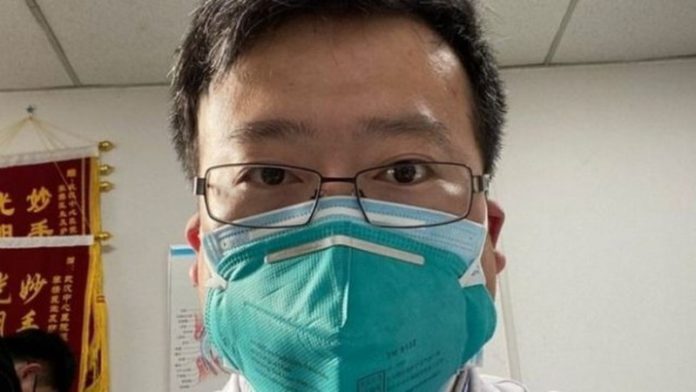Li Wenliang, the Chinese whistleblower doctor who warned the public of a potential “SARS-like” disease in December 2019, has died, according to Wuhan Central Hospital. The confirmation follows a series of conflicting statements about his condition from the hospital and Chinese state media outlets.
Li died of the novel coronavirus in Wuhan in the early hours of Friday morning (local time).
“Our hospital’s ophthalmologist Li Wenliang was unfortunately infected with coronavirus during his work in the fight against the coronavirus epidemic,” the latest hospital statement read.
“He died at 2:58 am on Feb 7 after attempts to resuscitate were unsuccessful.”

Earlier on Thursday night, several state media outlets had reported Li’s death, following which Chinese social media erupted in profound grief and anger.
Hours of confusion followed, with Wuhan Central Hospital releasing a statement saying Li was still alive and in critical condition, adding that they were “making attempts to resuscitate him.”
State media subsequently deleted their previous tweets.
The hospital later confirmed his death.
Wuhan’s whistleblower
Li had raised the alarm about the virus that ultimately took his life.
In December, he posted in his medical school alumni group on the Chinese messaging app WeChat that seven patients from a local seafood market had been diagnosed with a SARS-like illness and were quarantined in his hospital in Wuhan.
Soon after he posted the message, Li was accused of rumor-mongering by the Wuhan police.
He was one of several medics targeted by police for trying to blow the whistle on the deadly virus in the early weeks of the outbreak, which has sickened more than 28,000 people and killed more than 560. He later contracted the virus himself.
Li was hospitalized on January 12 and tested positive for the coronavirus on February 1.
Fury on social media
China’s social media channels were awash with anger following news of Li’s death.
The topics “Wuhan government owes Dr. Li Wenliang an apology,” and “We want freedom of speech,” soon began to trend on China’s Twitter-like platform, Weibo. Each gained tens of thousands of views before disappearing from the heavily censored platform.
Another topic, called “I want freedom of speech,” had drawn 1.8 million views as of 5 a.m. Friday morning local time (4 p.m. ET Thursday).
Top comments under the Wuhan Central Hospital’s statement about Li’s death included “I’ve learned two words: political rescue & performative rescue” and “Countless young people will mature overnight after today: the world is not as beautiful as we imagined. Are you angry? If any of us here is fortunate enough to speak up for the public in the future, please make sure you remember tonight’s anger.”
Several comments also marked the timing of the announcement. “I knew you would post this in the middle of the night,” wrote one Weibo user.
“You think we’ve all gone to sleep? No. We haven’t,” said another.
Confusion over his condition
The Global Times first announced Li had died in a tweet at around 10:40 p.m. local time Thursday, linking to a report that cited friends and doctors at Wuhan Central Hospital.
It deleted the post several hours later. Other Chinese media outlets also deleted their reports of his death, without explanation. The World Health Organization released a message of condolence following the initial reports that Li was dead but later updated their statement to say they did not have any information about the doctor’s status.
Wuhan Central Hospital issued a new statement confirming his death later that day.
The death toll and number of people infected by the Wuhan coronavirus continues to grow, with no signs of slowing despite severe quarantine and population control methods put in place in central China.
The number of confirmed cases globally stood at 28,275 as of Thursday, with more than 28,000 of those in China. The number of cases in China grew by 3,694, or 15%, on the previous day. There have been 565 deaths so far, all but two of which were in China, with one in the Philippines and one in Hong Kong.

